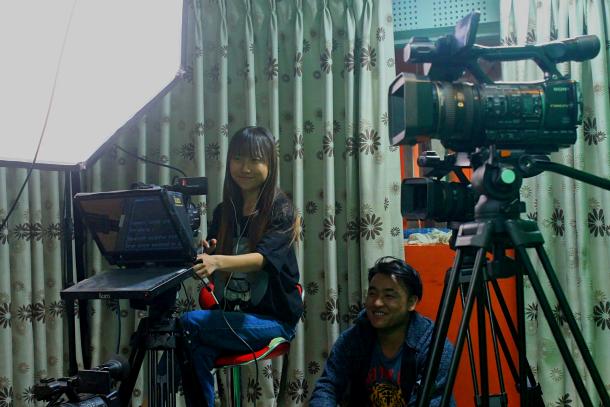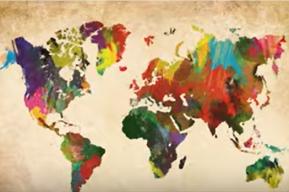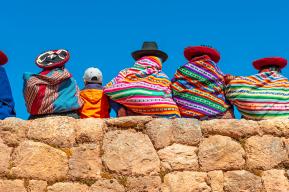Event
Follow up to the UNPFII recommendations: Indigenous Peoples and the Media

In the margins of the 23rd session of the United Nations Permanent Forum on Indigenous Issues (UNPFII), UNESCO, in cooperation with the Special Rapporteur on the Rights of Indigenous Peoples, Griffith Centre for Social and Cultural Research of Griffith University (Australia) and other partners, is organizing a multistakeholder event on the implementation of Article 16 of the UN Declaration on the Rights of Indigenous Peoples (UNDRIP) and the follow up to the UNPFII’s recommendations.
Building on the Universal Declaration of Human Rights, the importance of media is enhanced in Article 16 of the UNDRIP acknowledging Indigenous Peoples’ right “to establish their own media in their own languages and to have access to all forms of non-indigenous media without discrimination” and inviting States “to take effective measures to State-owned media duly reflect indigenous cultural diversity. States, without prejudice to ensuring full freedom of expression, should encourage privately owned media to adequately reflect indigenous cultural diversity”.
In 2023, the Permanent Forum on Indigenous Issues (UNPFII) underlined the need for the examination of national policies, practices, and funding programmes on Indigenous Peoples’ media in its report to the Economic and Social Council (ECOSOC). The UNPFII also mandated UNESCO in partnership with relevant UN entities and Indigenous Peoples, to conduct a study on Indigenous Peoples and the media and present their findings at its annual session in 2025.
A further step was taken in the recent resolutions adopted by the United Nations General Assembly (A/RES/78/189, paragraph 41) and the Human Rights Council (A/HRC/54/12, paragraph 11) in 2023. Both marks an important step towards fostering cooperation among Indigenous, commercial, community and public service media. Both also urged Member States to review national policies, practices and funding related to Indigenous Peoples’ media and the representation of Indigenous content and services in other media represents a significant shift with important implications for the development of free, pluralistic, and independent media for Indigenous Peoples.
Agenda
1.15 pm – 1.45 pm | Introduction: Reflection on major takeaways from past research and fieldwork experience
- Ms Estelle Zadra, Senior UN Coordination Officer, UNESCO Liaison Office in New York
- Dr Harry Van Issum, Principal Research Fellow, Griffith Centre for Social and Cultural Research, Griffith University (Australia)
- Ms Heather Anderson, Associate Professor, Griffith Centre for Social and Cultural Research, Griffith University (Australia)
1.45 pm – 2.15 pm | Debate: Considerations for a representative and evidence-based study
- Mr Francisco Calí Tzay, Special Rapporteur on the Rights of Indigenous Peoples
- Ms Valmaine Toki, Vice Chair, Expert Mechanism on the Rights of Indigenous Issues (EMRIP)
- Mr Robert Doane, Senior Director, National Indigenous Strategy, Canadian Broadcasting Corporation CBC (Canada)
- Ms Francine Compton, Associate Director, Indigenous Journalists Association (IJA)
2.15 pm – 2.30 pm | Next steps: Suggestions for future action
Questions from the audience
Suggestions from speakers for future action
Closing remarks
Additional resources
- Follow up to the UNPFII recommendations: Indigenous Peoples and the Media (2024)
- Permanent Forum on Indigenous Issues: report on the 22nd session (17-28 April 2023)
(E/2023/43-E/C.19/2023/7, paragraph 10) - Human rights and Indigenous Peoples - Resolution adopted by the Human Rights Council on 11 October 2023 (A/HRC/54/12, paragraph 11)
- Rights of Indigenous Peoples - Resolution adopted by the General Assembly on 19 December 2023 (A/RES/78/189, paragraph 41)
- Multi-stakeholder consultative meeting “Creating an enabling environment for free and independent Indigenous community media” on 18 April 2023 on the margins of the 22nd session of the United Nations Permanent Forum on Indigenous Issues in New York
- Multi-stakeholder consultative meeting “The launch of a thematic study on Indigenous Peoples and the Media” was organized in partnership with the European Broadcasting Union (EBU) and the Public Media Alliance (PMA) in Geneva on 19 July 2023 on the margins of the Expert Mechanism on the Rights of Indigenous Peoples (EMRIP).





